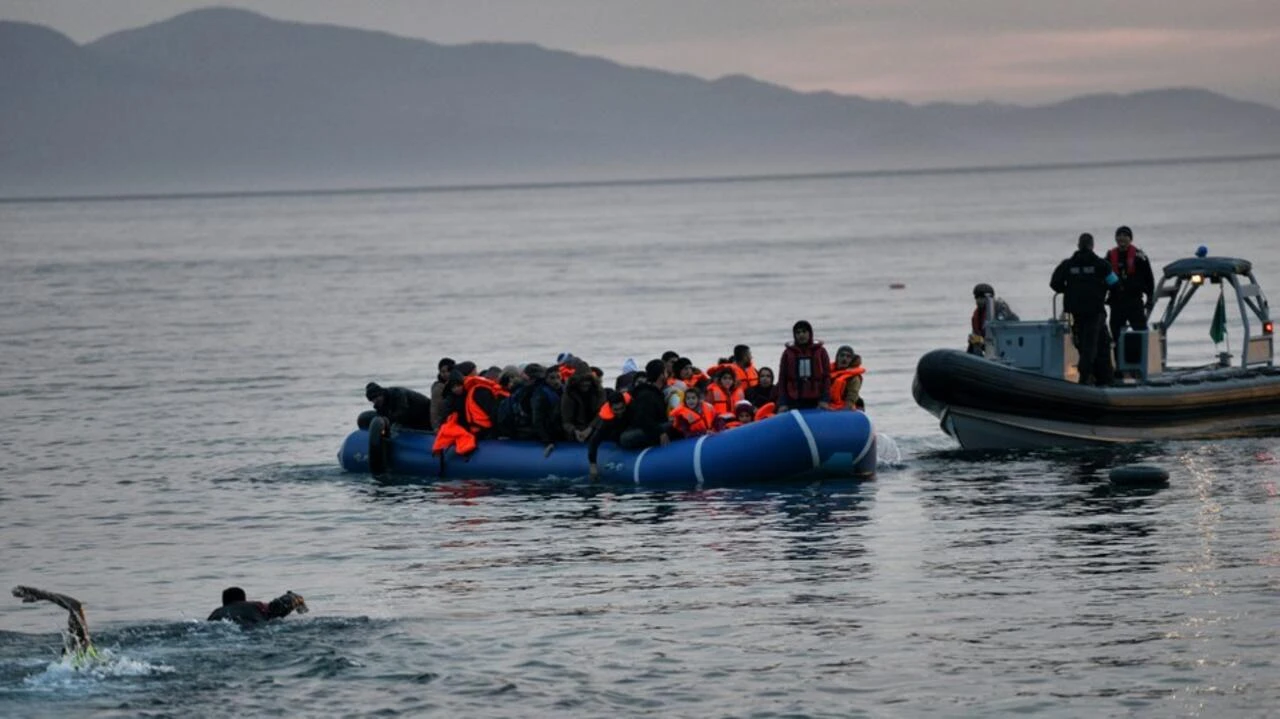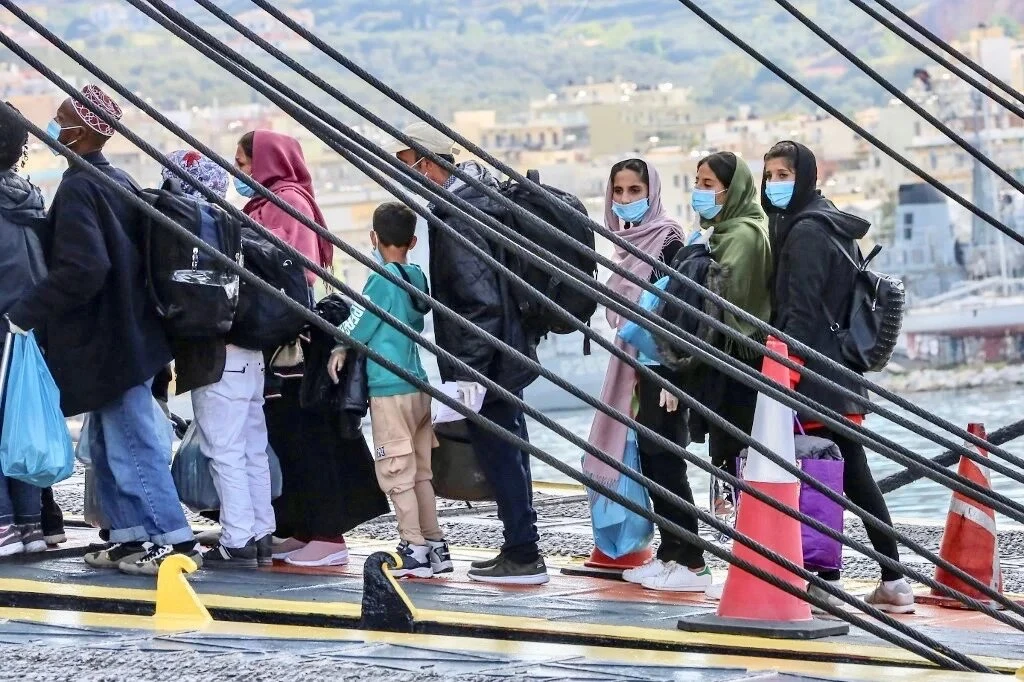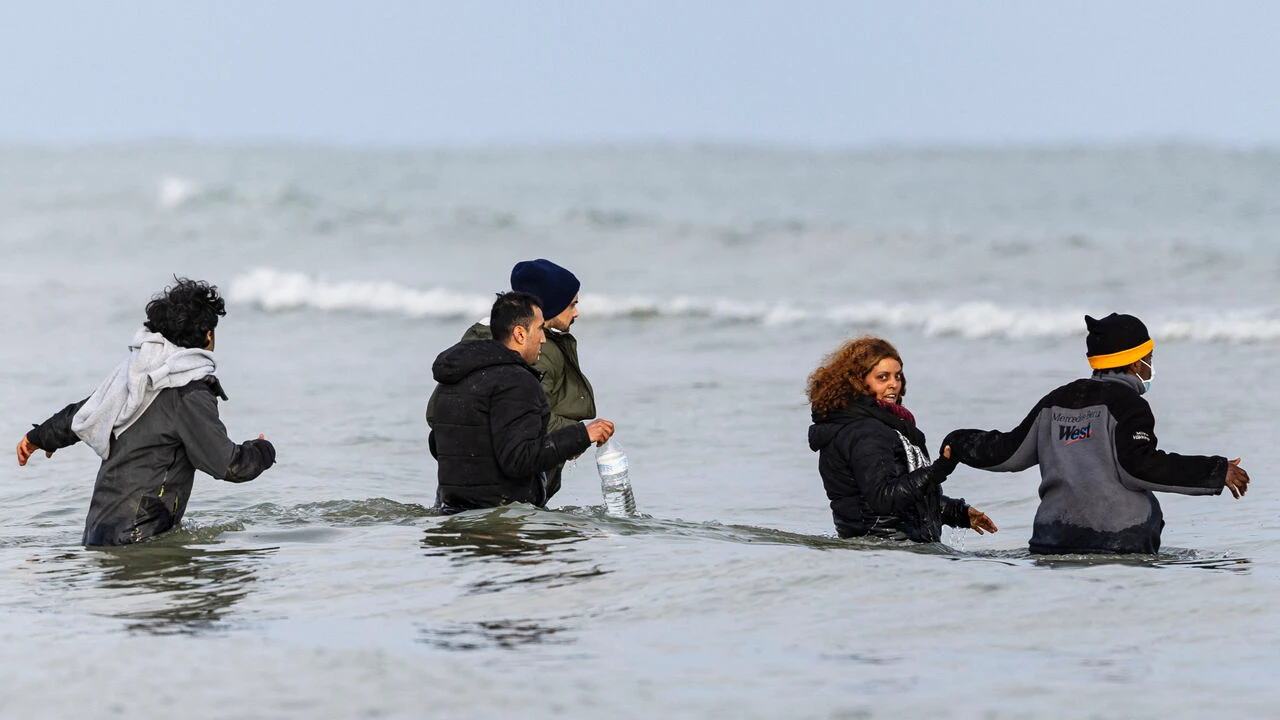Frontex warns Greece over migrant pushbacks, considers urging EU disciplinary action
 Refugees and migrants massed onto an inflatable boat reach Mytilene, northern island of Lesbos, after crossing the Aegean sea from Türkiye on Feb. 17, 2016. (AFP Photo)
Refugees and migrants massed onto an inflatable boat reach Mytilene, northern island of Lesbos, after crossing the Aegean sea from Türkiye on Feb. 17, 2016. (AFP Photo)
The European Union’s border agency, Frontex, has warned it may request the European Commission to initiate infringement proceedings against Greece over its treatment of migrants.
Jonas Grimheden, Fundamental Rights Officer at Frontex, told Politico that Greece’s behavior has left the agency facing two options: either suspending its mission or formally asking Brussels to act.
Grimheden emphasized that suspending Frontex’s activities would hinder oversight efforts. “If Frontex were to leave Greece, there would no longer be any way to learn how the authorities are dealing with arriving migrants. The agency ensures monitoring and transparency,” he said.
Grimheden stressed that some form of punishment should occur, noting, “The Commission itself is capable of initiating infringement proceedings against a member state. Frontex cannot solve the problem alone.”
He also suggested that Athens’ access to EU funds could be linked to progress on migrants’ human rights issues. Should Athens continue to evade its responsibilities, the European Commission could escalate the matter to the Court of Justice of the EU.

Potential funding cuts to Greek Coast Guard vessels
Grimheden indicated that Frontex might cut funding for coast guard vessels co-financed with the agency if Greece fails to implement core migration policy recommendations.
The European Commission did not respond to repeated requests for comment. In May 2023, the EU had already called on Greece to investigate allegations of migrant pushbacks and mistreatment at sea.
Currently, Greece has 13 open cases regarding alleged migrant rights violations, the highest number among EU member states. Nearly one-third of Frontex’s 56 open cases in 2024 involve Greece.
“Greece remains our biggest problem in terms of human rights,” Grimheden said.

Recent incidents highlight persistent migrant pushback concerns
On April 3, seven migrants, including two children, drowned near Lesbos after the Greek Coast Guard intervened, according to a complaint received by Frontex.
The agency has opened an investigation, collecting photographic and video evidence and survivor testimonies, and seeking Greek authorities’ comments.
An official from the Greek Coast Guard stated that the complaint came from one of the 23 rescued migrants and attributed the capsizing to overcrowding on the boat.
Many of the open cases are linked to alleged forced removals of migrants at sea and land borders. Pushbacks are illegal under the United Nations Refugee Convention and international law.
In January, the European Court of Human Rights ruled against Greece for conducting systematic pushbacks and violating human rights law.
Frontex itself faced misconduct allegations related to migrant handling in 2022, leading to the resignation of its then-chief.

German court rules some migrants may be returned to Greece
Germany’s Federal Administrative Court ruled that single, healthy asylum seekers arriving from Greece can be returned, despite deficiencies in Greece’s reception system.
The court found that such individuals would not face extreme hardship, and therefore, deportation would not constitute a violation of human rights.
Background: EU hardens stance on migration
Since the 2015 migration crisis, when a million asylum seekers arrived in Europe, mostly from Syria, the EU has increasingly toughened its migration policies.
Recently, the bloc identified seven countries considered “safe” for returning asylum seekers, complicating the application process for nationals of those countries.
A spokesperson for the Greek Coast Guard, Nikolaos Alexiou, told Politico:”The humanitarian work of the Greek Coast Guard is unquestionable, and that is precisely why it is widely recognized over time.”
Greek government spokesman Pavlos Marinakis, addressing concerns last week, stated: “Our country is the one that protects Europe’s maritime borders in the vast majority of arrivals. In any case, Frontex investigates all complaints, even those from unconfirmed sources.”
Greek authorities have not issued an official response to Frontex’s recent warnings.



